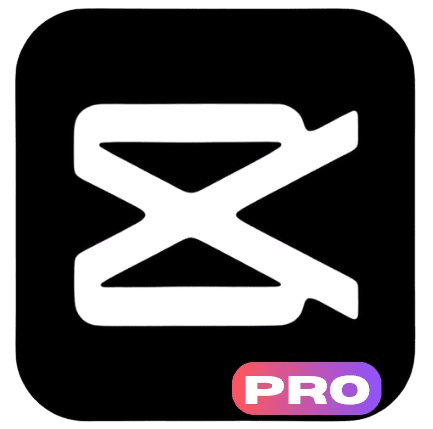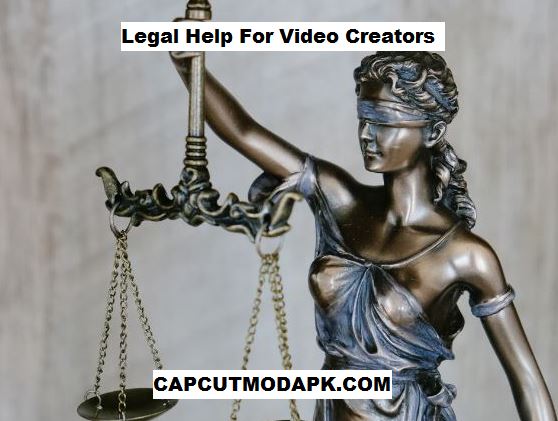Video creation is an exciting venture, but with it comes a host of legal challenges. Whether you’re producing content for YouTube, social media platforms, or independent films, understanding the legal landscape can save you a lot of trouble down the road. Legal issues like copyright infringement, content licensing, and intellectual property rights can pose serious risks to video creators if not properly addressed. This is why seeking legal help for video creators is essential to protect both your creative work and your career.
While video creation might seem straightforward, navigating the legal side can be complex. From using copyrighted music to managing content partnerships, there are numerous legal matters that can arise. Having the right legal guidance ensures that you can focus on creating while staying within the law. Ignoring these legal aspects can lead to content removal, fines, or even lawsuits. Legal help for video creators is more than just a safety net, it’s a necessity to ensure long-term success and protection.
In this article, we’ll explore the most common legal issues video creators face and discuss why legal help for video creators is so crucial. From protecting your intellectual property to understanding fair use, we’ll cover key legal considerations that every video creator should be aware of. By the end, you’ll have a solid understanding of the legal protections available to you and how to stay compliant while producing your videos. Also, READ Top Video Editing Apps
Copyright Laws and Fair Use
One of the biggest legal concerns for video creators is copyright law. Copyright protects the original work of creators, including videos, music, graphics, and scripts. If you use someone else’s copyrighted material without permission, you can face significant legal consequences. This is why understanding copyright law is a vital part of any video creator’s toolkit. Legal help for video creators can guide you in ensuring that your work is protected and that you’re not inadvertently infringing on others’ rights.
Fair use is a common defense in copyright disputes. It allows for limited use of copyrighted material without permission, but it’s tricky to navigate. Fair use can apply if the work is used for purposes like commentary, criticism, news reporting, teaching, or parody. However, it’s not a free pass. Just because your video falls under fair use doesn’t mean you’re automatically safe. Legal help for video creators becomes critical in determining whether a specific use qualifies as fair use. An attorney can help evaluate the situation based on factors like the purpose of use, the amount of the work used, and the potential market impact.
In many cases, obtaining proper licenses for the use of copyrighted material is the best approach. Video creators often rely on music, clips, or other content owned by others. Licensing ensures that you have the right to use that material in your work. There are several ways to obtain licenses, including negotiating directly with the copyright holder or using royalty-free content. A legal professional can help you navigate this process, ensuring that you acquire the appropriate licenses and avoid any legal issues down the line.
Content Licensing and Contracts
When working with other creators or companies, understanding content licensing and contracts is vital. These agreements define how content will be used, shared, and distributed. Video creators often enter into partnerships with brands, musicians, or other creators, and a clear contract is essential to avoid misunderstandings. Whether you’re licensing your work to a brand or licensing someone else’s work for your video, a contract spells out the terms of the deal.
Content licensing refers to the permission granted to use a specific piece of content in your video. For example, you may want to include a clip from a popular TV show or a song in your video. Obtaining the proper license ensures that the content owner has authorized its use. Without this, you risk facing copyright claims or even having your video taken down. Legal help for video creators is essential when it comes to drafting, reviewing, or negotiating licensing agreements. A lawyer can ensure that your contract protects your rights and interests while also clearly outlining what is and isn’t allowed.
In addition to licensing agreements, video creators must also consider other contracts related to production, collaboration, or distribution. For instance, if you’re hiring someone to help with the video production, such as a videographer, editor, or sound engineer, it’s essential to have a contract in place that defines the terms of the collaboration. These contracts should address ownership of the content, payment terms, and confidentiality clauses. Legal help for video creators ensures that these agreements are fair and legally sound, helping you avoid disputes or complications later on.
Protecting Your Intellectual Property
Intellectual property (IP) is a key consideration for video creators. Your videos, scripts, logos, and other creative works are considered intellectual property. Protecting your IP ensures that no one else can use your work without your permission. There are several ways to protect your IP, and legal help for video creators can guide you through the process.
The first step in protecting your IP is copyright registration. Although your work is automatically copyrighted as soon as it’s created, registering it with the U.S. Copyright Office (or the relevant office in your country) provides additional legal benefits. For example, registering your copyright gives you the ability to sue for statutory damages and attorney fees in the event of infringement. A lawyer specializing in intellectual property law can help you navigate the registration process and make sure your work is properly protected.
In addition to copyright, other forms of protection, like trademarks and patents, may apply depending on the type of work you’re creating. For example, if you create a unique logo or a new type of video content, you may want to trademark your logo or the name of your channel. Legal help for video creators can advise you on the best way to protect your brand and creative assets, whether that involves trademarks, patents, or other forms of protection. This proactive approach can help prevent others from using your work without permission and safeguard your content from unauthorized exploitation.
Dealing with Defamation and Privacy Concerns
Video creators must also be mindful of defamation and privacy issues when producing content. Defamation refers to making false statements about someone that damage their reputation. In the context of video creation, this can include making untrue claims about individuals, companies, or other entities in your videos. Legal help for video creators is invaluable when it comes to understanding the boundaries of free speech and the risks associated with defamation.
Privacy concerns are also a major issue for video creators. If you’re shooting videos in public spaces or featuring other people in your content, it’s important to be aware of privacy laws. For instance, filming in a private home or in a location where people have an expectation of privacy (such as a bathroom or locker room) may violate privacy rights. Even if you’re filming in public, you may still need to obtain releases from people who appear in your video.
A lawyer who specializes in media law can help you navigate these issues, ensuring that you’re not violating anyone’s privacy rights or making defamatory statements. This type of legal guidance can help you avoid costly lawsuits and reputation damage, which can severely impact your career as a video creator.
Dispute Resolution and Legal Protection
No matter how careful you are, disputes can arise in the world of video creation. Whether it’s a disagreement with a brand, a collaborator, or a copyright owner, knowing how to handle legal conflicts is crucial. Legal help for video creators becomes particularly important when you need to resolve disputes efficiently and protect your interests. Having a lawyer who understands your needs and is familiar with the legal frameworks surrounding content creation can help you navigate these issues.
One of the best ways to avoid legal disputes is by having clear, well-drafted contracts in place from the beginning. This way, all parties involved understand their rights and obligations. If a dispute does arise, a lawyer can guide you through the process of resolving it, whether it involves negotiation, mediation, or litigation. Legal professionals who specialize in entertainment law can provide strategic advice and help you settle disputes while minimizing any damage to your career or finances.
It’s also important to understand the legal protections available to video creators under copyright law, freedom of expression, and fair use. Legal professionals can help ensure that you’re not at risk of losing your rights to the content you create or having your content unjustly taken down. They can also advise you on the best course of action if you’re dealing with copyright infringement or a takedown notice from platforms like YouTube or Vimeo.
Conclusion
Legal help for video creators is not just a luxury, it’s an essential part of maintaining a successful and sustainable career in content creation. From protecting your intellectual property to navigating licensing agreements, contracts, and privacy concerns, having the right legal guidance is crucial. As a video creator, you face numerous legal challenges that can affect your content, your reputation, and even your financial stability. By understanding the key legal aspects of video creation and seeking professional help when needed, you can ensure that your content remains protected, your rights are upheld, and you can continue creating with peace of mind.


